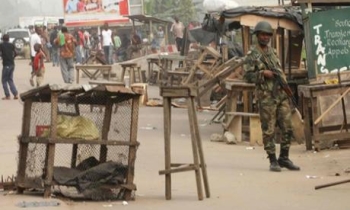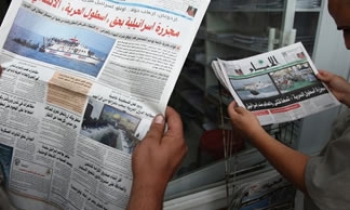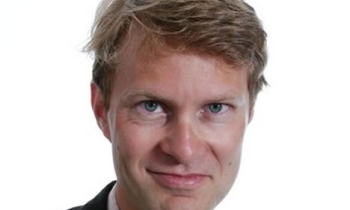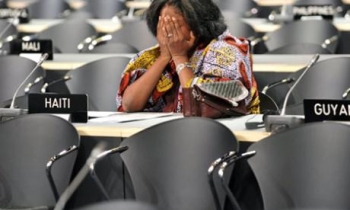In retrospect, it should have been a given that Hizbullah would be capable of claiming “media superiority” and strength following the last war between Israel and Lebanon. However, various media sources were forced to jump at every opportunity to get information regarding Hizbullah leaders and the group’s political stand, after extended periods of silence on the part of Hassan Nasrallah and Hizbullah spokespersons for security reasons. Hizbullah, though, claims it managed to make it through the war unscathed in terms of the media, with its primary mouthpieces, Nur Radio and the Al Manar channel, harmed. However, several leading media outlets in Lebanon who asked not to be identified have painted quite a different picture regarding Hizbullah’s post-war media fortitude.
On many issues, Hizbullah spokespersons have left the Lebanese public without answers to important questions regarding the party’s stand, and are instead left with confusing, and oftentimes conflicting, messages, hurting the group’s credibility considerably. As for Hizbullah’s use of various media outlets, the current situation has forced the group and its leader Hassan Nasrallah to put them to use in ways which may not be beneficial for the group when all is said and done. ‘Al Manar’, which sought to present itself as a credible news source during Lebanon’s ‘National Dialogue’ period before the outbreak of the war, is now hard-pressed to rid itself of its image as a mere propaganda mouthpiece for Hizbullah. Subsequently, most of Lebanon’s general public is under the impression that there is little need for Al Manar broadcasts within the country. Furthermore, the station’s viewership outside the ranks of Hizbullah and its supporters is next to none.
Meanwhile, Nasrallah’s last three media appearances took place through outlets known to represent a relatively narrow portion of the political spectrum: NTV channel, Al Saffir daily and also the exclusive interview with Al Jazeera bureau chief in Beirut, Ghassan Ben-Jedo. The former, which served throughout the course of the war a similar role to that of Al Manar—a mouthpiece of the resistance movement, continues to remain at odds with the family of former Lebanese premier Rafiq Al Hariri. Al Saffir, on the other hand, successfully managed to maintain throughout the war the image of a credible news source, striving throughout to portray itself as neutral, and at times even providing a platform for Hizbullah critics. Nonetheless, the platform which the daily lent to Nasrallah in its September 5 interview with the Hizbullah chief, along with numerous articles of extensive praise towards him, left the paper’s ultimate neutrality in question. Furthermore, publisher Tla’at Salman has never much concealed his pro-Syrian stance nor his support for the resistance for that matter. The fact that Al Saffir’s September 5 issue was nearly entirely dedicated to Nasrallah subsequently raised more than a few eyebrows in media circles, leading some to ask: Did Salman really believe that the paper’s readers would interpret such a move as an important journalistic step, revealing essential and credible facts? Many, apparently, believed the answer to be “No,” with some even hinting at the involvement of Damascus in the matter. In the case of Ben Jedo, he has been long ago considered as a pure admirer of Nasrallah and thus his interview with Nasrallah was considered by many in Lebanon as a comfortable option for the latter.
Regarding Nasrallah’s election, it seems, media circles maintain that the use of agenda-bent journalism outlets by the Hizbullah head also did the group a disservice; by using excessive rhetoric, those on other ends of the political spectrum who had until then paid heed to his viewpoints were now alienated.
Most importantly, however, is Nasrallah’s involvement with Al Ahbar daily, whose political stance is heavily influenced by publicist Ibrahim Al Amin, known for his proximity to senior Hizbullah officials. A mere cursory review of the daily’s articles reveals a very clear picture: behind the image of balanced reporting and neutral journalism lies yet another mouthpiece of Hizbullah, funded by Iran. An example of such is seemingly objective critiques of border controls between Syria and Lebanon, for instance. So too, it seems that Al Amin’s transition from political and military journalist to political analysis with clear pro-Syrian currents has perhaps served one of Hizbullah’s primary venues of psychological warfare. Additionally, Al Ahbar’s nearly complete support of Hizbullah’s stand regarding the investigation into the murder of Hariri, its critique of the March 14 group, its insistence on the right of the resistance to hold arms, as well as the presence of Joseph Samaha, formerly of Al Saffir, critiquing all those who find fault with Nasrallah all attest to the problematic nature of the daily’s so-called neutrality.
Media circles in Lebanon conclude that Hizbullah’s need to utilize mouthpieces rather than mainstream media outlets have considerably weakened the group’s perceived credibility in the eyes of Lebanon’s general public. Thus, maintain such media experts, in describing Hizbullah’s media representation, a clear connection between Tehran, Damascus, and ultimately, Beirut’s southern neighborhoods, surfaces.









